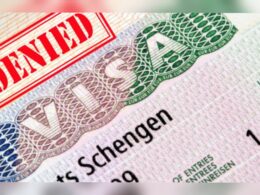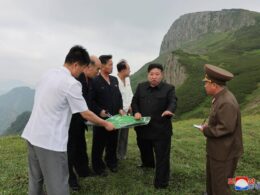The Federal Government of Nigeria, through the Ministry of Women Affairs, has partnered with Wema Bank to launch the MOWA x SARA Accelerator Programme, a groundbreaking initiative aimed at empowering 500,000 women across Nigeria.
Abuja, Nigeria- This initiative is designed to provide vocational and business management skills to women, equipping them with the tools to become financially independent and active contributors to national development.
Launched with the aim of promoting gender inclusion and equality, the programme will focus on providing women with tailored resources and opportunities. From financial support to access to markets, healthcare, and networking opportunities, the MOWA x SARA Accelerator Programme seeks to empower Nigerian women on multiple fronts, supporting their professional and personal growth.
The initiative, which is a collaboration between Wema Bank and the Ministry of Women Affairs, is set to run for 24 months and will span all 36 states of Nigeria, including the Federal Capital Territory (FCT). The programme will specifically target vocational skills in food processing, fashion designing, and hairdressing, while also offering business management training to help participants thrive in today’s competitive marketplace.
Programme Details and Structure
The MOWA x SARA Accelerator Programme will be divided into five-day training sessions, with the first two days dedicated to soft skills and business management education, followed by two days of hands-on vocational training. The final day of each session will be devoted to assessments and evaluations to measure participants’ understanding and readiness to apply their newly acquired skills.
The programme will be delivered in eight cohorts, ensuring a wide reach across the country. The initial pilot phase is set to kick off in Anambra State, and will later expand to Ekiti and Kano states. As the programme progresses, women from all corners of Nigeria will be able to participate, furthering the initiative’s goal of bridging the gap in gender inclusion.
Speaking at the Memorandum of Understanding (MOU) signing ceremony held on September 30, 2024, at the Ministry of Women Affairs Office in Abuja, Wema Bank’s Executive Director of Retail and Digital, Tunde Mabawonku, expressed confidence in the transformative power of the programme.
“Nigeria’s ever-evolving macroeconomic landscape calls for an acutely intentional approach to providing tailored solutions and opportunities to empower our people, especially women,” Mabawonku said.
“At Wema Bank, we are very intentional about tailoring our empowerment efforts to the needs of our diverse customer demographics. This is evident in our partnerships, products, and initiatives; one of which is SARA by Wema.”
SARA: Wema Bank’s Commitment to Women
SARA, Wema Bank’s women-focused proposition, was launched in 2019 with a mission to empower Nigerian women with resources that go beyond traditional banking. The platform provides women with access to financial tools, business development resources, healthcare services, and a wide range of other benefits designed specifically to help them succeed.
“SARA is a dedicated avenue for reaching out to women across Nigeria, empowering them with unique solutions tailored to their needs, even beyond banking, and providing them with the support they need to maximise their potential. This is what has informed the launch of the MOWA x SARA Accelerator Programme,” Mabawonku added.
Wema Bank has also allocated grants to the programme, ensuring that participants have the financial support they need to start or grow their businesses. According to Mabawonku, the initiative is designed to offer a “total package” for women looking to become economically active. From vocational training to business management, the MOWA x SARA programme provides women with the tools they need to thrive in Nigeria’s challenging economic climate.
Mabawonku encouraged all women, regardless of age or location, to register for the programme and take advantage of the opportunities available through the SARA community. She described the SARA community as a platform that connects women from all walks of life, providing them with networking opportunities and access to a wide range of benefits.
“To every woman out there, I also take this opportunity to invite you to join the SARA Community, our community for women who want better. There are so many opportunities rooted in SARA, and every woman can tap into this extensive range of benefits as a SARA Woman,” she said.
The Minister for Women Affairs, Uju Kennedy-Ohanenye, highlighted the importance of private-sector partnerships in driving sustainable women empowerment initiatives across Nigeria. She emphasized that the collaboration with Wema Bank is a critical step in ensuring the success of such initiatives.
“This partnership is beyond the Federal Ministry of Women Affairs; it extends to Nigerian women at large. Our goal is to ensure the sustainability of all women empowerment initiatives, which is why we are bringing in the private sector. On this project, Wema Bank is evidently ready to fly, and we are committed to flying together to achieve our objectives.”
The MOWA x SARA Accelerator Programme reflects the ministry’s commitment to advancing the rights and opportunities of women across Nigeria. With a strong focus on vocational skills, business management training, and financial literacy, the initiative is set to make a significant impact on the lives of many Nigerian women, helping them become economically empowered and self-sufficient.
The programme’s potential for driving economic growth and reducing poverty among women is undeniable. By equipping women with practical skills and business knowledge, the MOWA x SARA Accelerator Programme aims to create a ripple effect that will benefit families, communities, and the broader Nigerian economy.
As more women gain access to vocational skills and entrepreneurial resources, they will be able to contribute more actively to the workforce, leading to increased household incomes and improved standards of living. Moreover, by promoting gender inclusion, the programme is helping to break down the barriers that have historically held women back in Nigeria’s male-dominated economy.











How do one register?